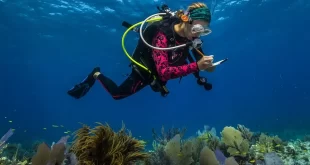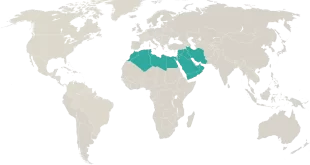Applications are hereby invited for admission to MSc in One Health Molecular Biology at Sokoine University of Agriculture (SUA) for the academic year 2018/2019. The deadline for this round of applications for Master of Science in One Health Molecular Biology will be on 01 October 2018. Successful candidates will be informed and they are expected to embark on studies on 29 October 2018. Candidates meeting the prescribed minimum qualifications are invited to apply for admission.
SOKOINE UNIVERSITY OF AGRICULTURE
COLLEGE OF VETERINARY MEDICINE AND BIOMEDICAL SCIENCES
MOROGORO, TANZANIA
The Southern African Centre for Infectious Disease Surveillance – Africa Centre of Excellence for Infectious Diseases of Humans and Animals in Eastern and Southern Africa (SACIDS – ACE)
The SACIDS-ACE is a ONE HEALTH Virtual Centre, whose Mission is to harness innovation in science and technology in order to improve Africa’s capacity to detect, identify and monitor infectious diseases of humans, animals, ecosystemsand their interactions in order to better manage the risk posed by them.
The SACIDS-ACE stems from the concern for a high burden of infectious diseases in Africa and yet limited capacity for its risk management. It arises out of a consortium in Southern and East African countries (Tanzania, Democratic Republic of Congo, Zambia, Mozambique and South Africa) that was formed in January 2008 as a One Health partnership of medical and veterinary institutions, plus smart partnership with the London School of Hygiene and Tropical Medicine (LSHTM), the Royal Veterinary College (RVC), the London International Development Centre (LIDC) and The Pirbright Institute, with Sokoine University of Agriculture (SUA) in Tanzania, as the Lead Institution. The core partnership of the Center is SUA, Muhimbili University of Health and Allied Sciences (MUHAS) and the Tanzania National Institute for Medical Research (NIMR). Its current partnership extends to institutions in Botswana, Kenya and Uganda plus associate relations with institutions in Rwanda, Ethiopia and Senegal as well as to new partners in Europe, Asia, South America and the USA to include private sector partners.
The programme of the SACIDS-ACE is funded from a variety of sources including the Government of the United Republic of Tanzania, the World Bank, the African Development Bank, the Wellcome Trust, Ending Pandemics, the World Bank-linked African Partnership for Skills in Applied Science and Technology (PASET), the International Development and Research Centre (IDRC) of Canada and the European and Developing Countries Clinical Trial Partnerships (EDCTP).
We are looking for highly qualified and motivated young, bright African students to undertake MSc in One Health Molecular Biology which is a regional programme catering for students from Africa and beyond. SACIDS-ACE is committed to the principle of gender equity and equal opportunity to individuals with physical disability. Female applicants are encouraged to apply.
About the programme:
This programme focuses on practical skills and a thorough understanding of how to apply molecular biology to One Health – an emerging discipline which promotes collaboration between specialists in the public, animal and environmental/ecosystems health sectors. The International One Health Initiative has defined One Health as: “the integrative effort of multiple disciplines working locally, nationally, and globally to attain optimal health for people, animals, and the environment. Together, the three make up the One Health triad, and the health of each is inextricably connected to the others in the triad”.
SACIDS-ACE applies these principles to the study of infectious diseases in Africa and has therefore identified the SACIDS-ACE One Health focus, which takes account of addressing the high burden of infectious diseases and the endemic settings of the African ecosystems. This SACIDS-ACE focus has been stated as involving a collaborative effort between natural and social sciences to advance the understanding of interactions between humans, animals and the environment to improve public and animal health.
Therefore, One Health as a scientific concept, promotes professional interactions, collaborations, and educational opportunities across the veterinary and medical professions, together with their allied sciences, in order to improve public health and animal health. It also encompasses inter-sectoral and response as well as development of enabling collaboration in disease surveillance, epidemic disease preparedness and policy platforms, across the human, animal and eco-health sectors.
This course has been designed to train a new generation of world class scientists who will serve to address the heavy burden and threat of infectious diseases in Africa that greatly hamper public health and animal health and thus socio-economic development of developing countries. The curriculum has been developed in collaboration with the UK’s London School of Hygiene and Tropical Medicine and the Royal Veterinary College in London.
The programme is run by the College of Veterinary Medicine and Biomedical Sciences of SUA in close collaboration with the School of Medicine and Public Health of Muhimbili University of Health and Allied Sciences (MUHAS) and benefits from support from other SACIDS consortium universities in Southern Africa as well as the LSHTM, RVC and other internationally reputable institutions.
Minimum admission qualifications:
The following shall be eligible for admission for the MSc in One Health Molecular Biology degree programme:
- Holders of honours Bachelor’s degree from an accredited University in biotechnology and laboratory sciences, molecular biology and biotechnology, human or veterinary medicine, or other biological sciences.
- Candidates who hold unclassified degrees should have a credit or a distinction in molecular biology, microbiology, genetic engineering, biotechnology, immunology or biochemistry.
Fellowships:
Thirteen applicants (nine Tanzanians and four from other African countries) with outstanding academic performance will be offered with a full-time SACIDS-ACE fellowship to cover their stipend and research support. SACIDS-ACE will support these fellows using funds from the Government of the United Republic of Tanzania through the World Bank’s Eastern and Southern Africa Higher Education Centres of Excellence Project (ACE II).
Application:
Applicants should apply for admission at SUA using the online admission system, which can be accessed at http://suasis.sua.ac.tz:9092/index.php/welcome Application forms can also be found at the Directorate of Postgraduate Studies, Research, Technology Transfer and Consultancy (DPRTC)’s website; https://www.dprtc.sua.ac.tz. The application MUST be accompanied with an application fee of TShs. 80,000/= (USD 50 for foreigners).
Application fees should be deposited in the SUA Student University Fees account; Local Tanzanian shillings account number: 0150076769860 at CRDB Bank, Morogoro, Tanzania. Swift Code No CORUTZTZXXX.
For further information please contact;
The Directorate of Postgraduate Studies, Research, Technology Transfer & Consultancy, Sokoine University of Agriculture, P.O. Box 3151, Chuo Kikuu, Morogoro, Tanzania.
Telephone: +255 23-2604388, Fax: +255 23 2604388.
E-mail: drpgs@sua.ac.tz
Website: http://www.dprtc.sua.ac.tz
Applicants are encouraged to copy their applications and support documentation to the SACIDS Secretariat e-mail: research.training@sacids.org Please ensure that your e-mail is titled Application MSc One Health Molecular Biology and contains the application form, two referee reports, evidence of payment of application fee, certified true copies of academic transcripts and certificates, a birth certificate and a recent passport sized photograph.
 medjouel.com Study Non Stop
medjouel.com Study Non Stop



